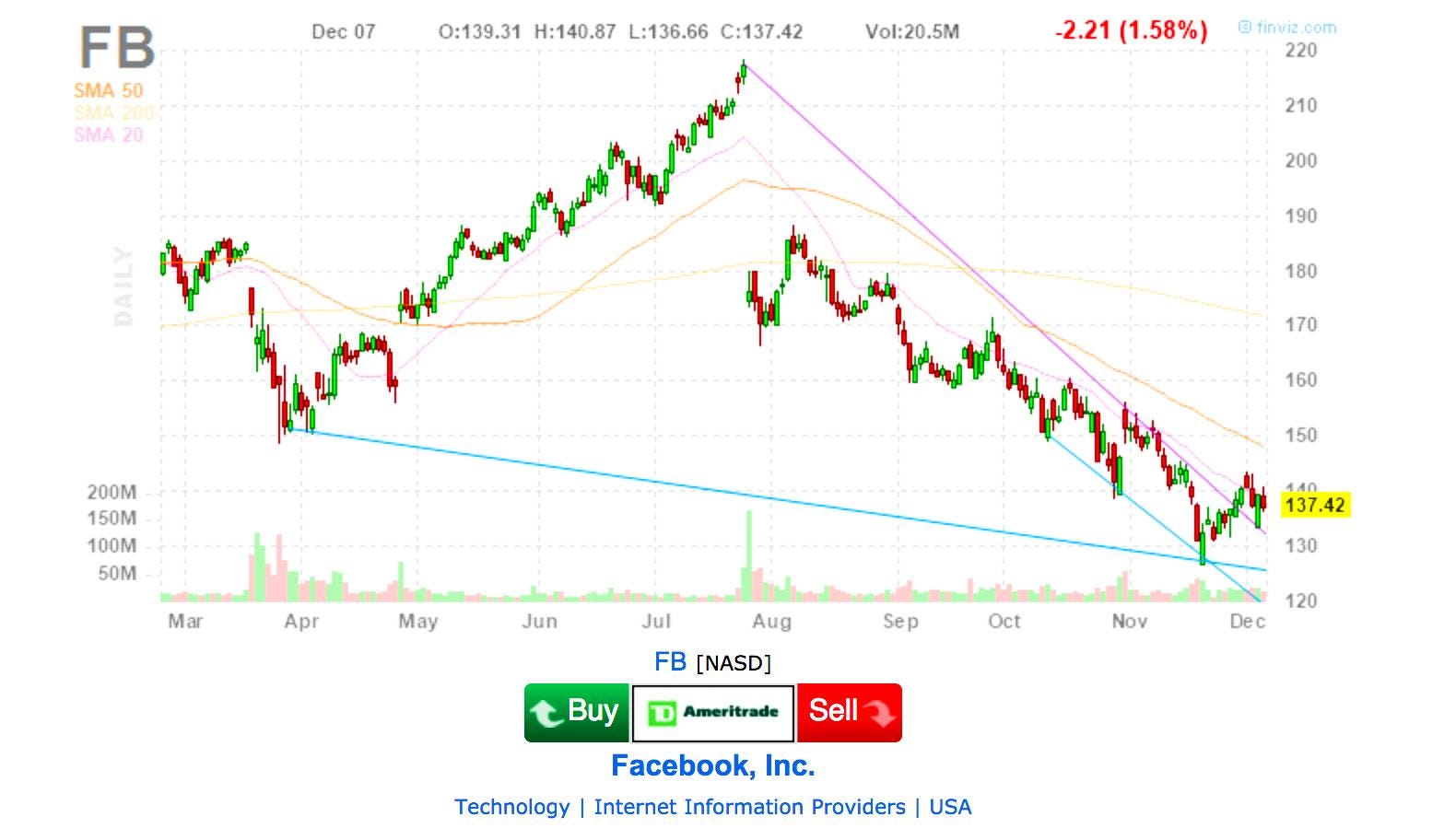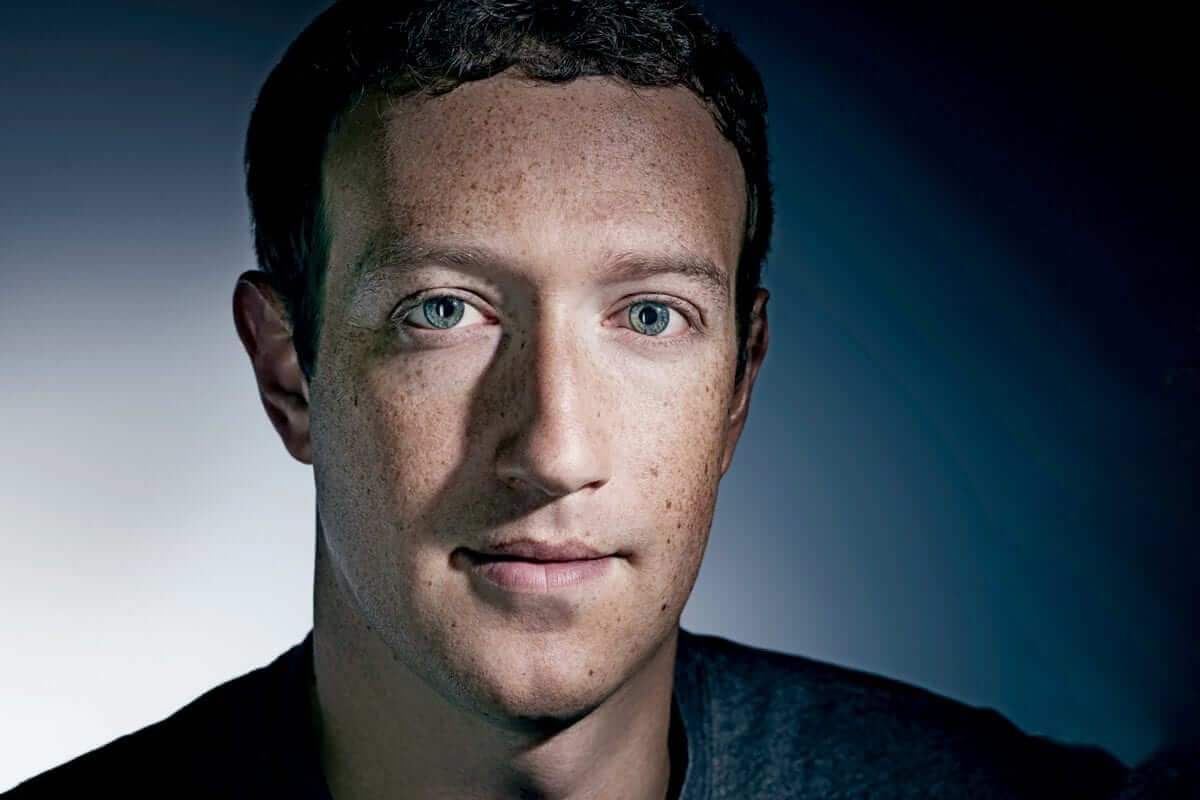No question social media has been one of the big stories of the past decade, with Facebook right in the center of it. It’s a fairly sensational story, full of big numbers. When they reached 2 billion registered users, it’s hard to simply yawn and say, “Oh, that’s interesting.” In 1927 there were just 2 billion people in the whole world.
Their rate of growth, of course, was unsustainable. I mean, if they continued to grow at the rate they have grown there would be, at some point, a bigger user base than the population of the world.
And so the company stumbled a bit this year, with integrity issues and then a stock market devaluation that saw Mark Zuckerberg’s net worth drop $15.4 billion dollars in a single day. (He can still eat truffles every night if he so desires.)

So, what’s next? I suppose there are people on Wall Street eager to discern Facebook’s future for investment purposes. And then there are the multitude of businesses who use the Facebook platform for marketing purposes. And finally, there are those masses who participate with Facebook for social purposes. (I’m curious what Facebook’s super-smart A.I. wizard is telling them.)
I decided to ask a few people I respect for their views on the matter, based on their own angles of repose. Here are a few of their responses.
Engagement will dwindle but it won’t go away
That’s a multi billion dollar question. On the one hand, Facebook has incredible, seemingly unstoppable momentum with billions of users around the globe connecting, uploading photos, and interacting with the platform for several years now. It would not be easy for individuals to completely walk away from that — it’s like leaving a diary of their lives and a means to stay connected with friends and family in the wastebasket. At tension with that is a platform that has become unwieldy compared to Twitter, Instagram, and other competitors, along with the mass realization that Facebook is ultimately a surveillance device that’s bad for our mental and physical health.
Facebook is currently facing declining engagement from users on the platform (Facebook fatigue?) and has failed so far to pull in younger generations. How all of this shakes out is tough to call but I predict engagement on Facebook will continue to dwindle but that it won’t go away. More and more it will exist as a phone book people keep on hand to stay connected while they interact more vigorously on other platforms. Of course, nobody knows for sure. There could still be an unforeseen force, such as a similar platform that addresses some of the major concerns — surveillance, ads, fake news, etc. It will be interesting to watch how this plays out over the next few years.
Use it as long as it is working
What Facebook does or doesn’t do is far less important than “what works for my company?” Use Facebook as long as it’s working and when it stops, try something else. I am part of a resorter family on Leech Lake and our resort was the first in the area to try 1–800 phone numbers. They were the first in the area to mail VHS tapes introducing themselves to prospects. They were one of the first to have a website. They’ll do fine as long as they keep trying new avenues. And so will you.
Robert Lillegard, Founder of Be Our Guest PR
I see challenges ahead
In my opinion, Facebook serves as a place to be connected and for entertainment. I predict challenges on both fronts.
Facebook is not going away, its presence will continue to be as ubiquitous as email even though user engagement on the platform will go down. I liken it to your “other” email address that you may keep because it’s connected to so many things but only check once a month. Facebook will be there, but fewer and fewer people will log in to the app and opt for platforms with a less negative public image like Instagram (even though it’s owned by Facebook).
As a place for entertainment, I predict it will face increasing competition. Juggernauts like YouTube continue to grow, and the rise of on-demand entertainment on platforms and devices will all complete with Facebook’s screen time. Thus, I predict Facebook will have an identity crisis of sorts and may need to reposition itself as an app to be connected with your local community and groups in its events extension or its messenger app. It may evolve to curate smaller online feeds through aggressive filtering of what you see and from whom in your feed, and streams of content from people, causes and/or events you care about.
AN INTERLUDE HERE
My interest in sci fi goes back more than a half century. Growing up with the Twilight Zone, Outer Limits and the Space Race created a readymade appetite for shows like Star Trek and the ongoing Star Wars saga at the theater. Reading books like Planet of the Apes, Andromeda Strain, and Asimov’s Robot stories fuels the imagination for all kinds of unexpected futures.
Then again, I don’t know many of us in the Sixties who envisioned the World Wide Web and its brood of social media platforms.
This past week I read a Medium story here about how some companies have invested money in sci fi writers who will help them predict the future as it relates to their brands. It’s an interesting game, actually. Assemble a pool of creative outside-the-box types who are dedicated to envisioning the future and playing out scenarios.
Sounds like fun, especially for the writers. For the companies, it sounds like a smart move, to determine what paths to place R&D bets on.
When Back-To-The-Future II was created it was fun to imagine tomorrowland, but even more fun to view it again 25 years later to see what they got right and got wrong.
So here’s the trigger for this blog post: According to Brian Merchant’s story Nike and Boeing Are Paying Sci-Fi Writers to Predict Their Futures (The New New) sci fi is an integral part of R&D in many companies today. Writes Merchant, “PricewaterhouseCoopers, the professional services firm that advises 440 of the Fortune 500 companies, published a blueprint for using science fiction to explore business innovation.” Harvard Business Review encourages the same practice: “Read more science fiction.”
It would be fun to see a writer’s competition that takes place in 2030 or 2040, with social media woven into its primary storyline. Think about how young Facebook really is compared to television and telescopes. At one time telescopes were science fiction. Rockets and moonwalks were also science fiction.
As for Facebook, there’s something sci-fi about it already, isn’t there? What do you see when you look at a crystal ball as regards Facebook in 2020? How about in 2040? The latter is certainly a stretch-your-brain exercise. We may even get 2019 wrong.
As Bob Hoffman, The Ad Contrarian, says, “Predicting the future is for fools. I’d rather make fun of fools than be one.”
About the Author
This article was written by Ed Newman, see more of his work at https://pioneerproductions.blogspot.com/





























